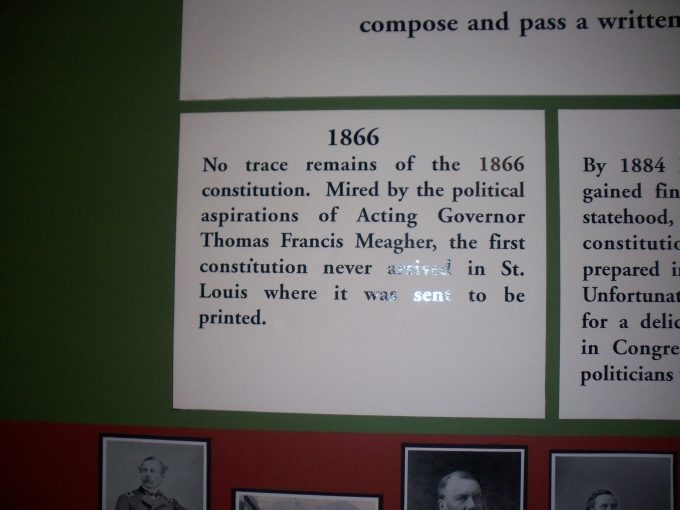
Monday, 30 April 2018
Preach the word! Be ready in season and out of season. Convince, rebuke, exhort, with all longsuffering and teaching. 2 Timothy 4:2
Paul’s “charge” of verse 1 is now given. Like in the Greek, it is quick and abrupt… “Preach the word!” The word “therefore” of verse 1 was based on Paul’s note about the Holy Scriptures of verses 3:14 – 3:17. His charge then is an emphatic call to take those precious words and to proclaim them like a herald. As he said in Romans 10 –
How then shall they call on Him in whom they have not believed? And how shall they believe in Him of whom they have not heard? And how shall they hear without a preacher? 15 And how shall they preach unless they are sent? As it is written:
“How beautiful are the feet of those who preach the gospel of peace,
Who bring glad tidings of good things!”
16 But they have not all obeyed the gospel. For Isaiah says, “Lord, who has believed our report?” 17 So then faith comes by hearing, and hearing by the word of God.
A person cannot call on Jesus unless they hear about Jesus. The source which tells of Jesus is the word of God. Likewise, a person cannot learn about Jesus unless they go to that same source. And so both faith and doctrine come from someone’s efforts in preaching the word. This is Paul’s exhortation for Timothy then, “Preach the word!” It is what he had spent his life since his conversion doing, and he was now passing the mantle on to Timothy to carry forward to a new generation.
He next tells him to, “Be ready in season and out of season.” In this, Paul uses the same root word, kairos, to explain his thought. It signifies, “the opportune time,” or “the favorable moment.” “In season” is eukairos. The prefix eu signifies good. Thus it would be “a good opportune time.” The term, “out of season” is akairos. The prefix signifies a negative. Thus it is “not the opportune time.” Paul is exhorting Timothy to be ready to preach the word regardless of the circumstances. If the house is on fire, it may not be a great time to stop and tell people the news, but Timothy is to be ready, even then, to do so. There is never a time that he should not be set and prepared to share the message of Christ.
From there, he gives rapid-fire advice concerning the preaching. First, he says, “Convince.” The idea here is “to expose.” Thus, it would be to convince with sound, solid, and compelling evidence. In this, it will prove that which is wrong, and correct it to that which is right. When the discussion is over, there should be no doubt concerning the truth and trustworthiness of the preaching.
Next, he says, “rebuke.” The idea here is to warn in order to prevent something from going wrong. As an example, a preacher may say, “You are walking an unsound path which can only lead to disaster. The gospel of Jesus Christ is the path which will bring restoration and fellowship with God. Call on Christ, and be reconciled to God through Him!”
He then tells him to “exhort.” This signifies encouragement. It is, in essence, to offer up evidence which will stand up in the court of God. Timothy is to use the Scriptures to encourage those he preaches to those things that will keep them on a sound, reasonable, and acceptable path.
Finally, Paul notes that he is to do each of these things, “with all longsuffering and teaching.” Timothy is being reminded that he (and all preachers) are to teach with patience and a gentle attitude. There is to be a spirit of perseverance while thick skulls slowly allow information to sink in. Sometimes, it will take saying the same thing again and again (and again). But the minister is to be ready and willing to just keep going with this slow, faithful, methodical, and repetitive instruction.
Life application: The main job of a preacher is to preach. It is the beginning of the faith for some, and it is to be the growth of the doctrine in them as well. It is only by the word of God that people will come to know Christ, and then to develop in Him. This doesn’t mean a tract cannot convince someone of coming to Christ, but the information on that tract must match the word of God, or it is not the true Christ who is being presented. Thus a false salvation will be the result. Everything must come back to Scripture.
Lord God, where are we going to learn about what You expect of us? We may think the answer is, “At church.” But if what the church is teaching is not based on Your word, then what we have learned is not correct. In the end, our salvation, and our doctrine need to go back to Scripture, or we have believed a lie. Keep us from assuming that going to church means we are OK with You. Rather, accepting Your word, and living in accord with it, is what we need. And so give us true teachers of Your word for our lives. Amen.
